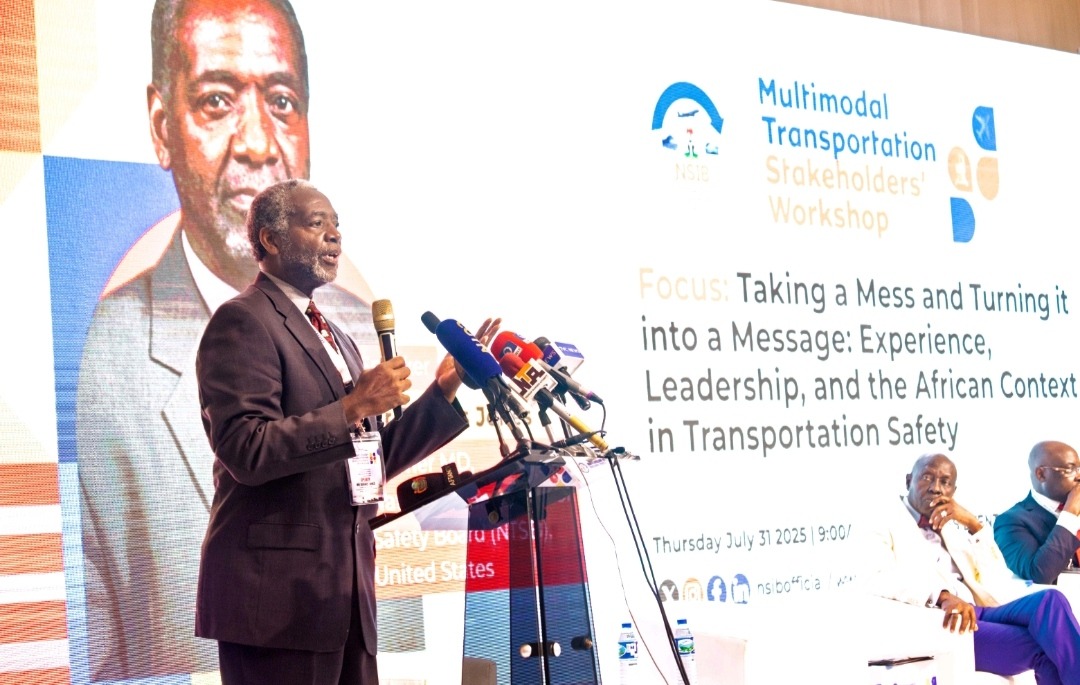Ex-NTSB Chief Urges Mental Health Support for Crash Investigators at NSIB Workshop

Former Managing Director of the United States National Transportation Safety Board (NTSB), Mr Dennis Jones, has called on accident investigation bodies in Nigeria and across Africa to integrate structured mental health support into their operational frameworks to safeguard the psychological wellbeing of investigators deployed to traumatic crash scenes.
Jones made this impassioned appeal while addressing participants at the Multimodal Transportation Stakeholders’ Workshop organised by the Nigerian Safety Investigation Bureau (NSIB) in Abuja.
The workshop, which brought together professionals from various arms of the transport and public safety sectors, was themed around enhancing safety through collaborative effort.
Drawing from his extensive experience at the NTSB, Jones shared that many first-time investigators were often overwhelmed by the emotional impact of crash sites, with some unable to return to duty after just one assignment.
“I’ve seen many walk away after one assignment,” he revealed. “When they step onto the scene and witness the human cost, some never return.”
To counter this, he explained that the NTSB institutionalised the deployment of psychologists alongside its investigative teams. These mental health professionals not only assess team members – especially those new to the field – but also offer immediate support when signs of trauma emerge.
“Sometimes, a few hours away from the site or a session with a mental health professional can make all the difference,” Jones noted. He stressed that working among wreckage, fatalities, and grieving families can inflict severe psychological distress, particularly for those unprepared for such encounters.
He warned that without proper mental health support, investigators could suffer long-term consequences, including Post-Traumatic Stress Disorder (PTSD). More critically, traumatised investigators might miss crucial evidence or prematurely exit the profession – outcomes that jeopardise the accuracy and sustainability of transport safety investigations.
“This has nothing to do with being tough,” he asserted. “If we ignore these human responses, we risk both the health of our investigators and the integrity of our investigations.”
Jones further urged the NSIB and sister agencies across the continent to make trauma management an institutional priority as they expand their scope across air, rail, road, and marine sectors.
“You cannot expect sustainable results from people carrying invisible wounds. Support systems must be part of the structure,” he concluded.
His presentation underscored the broader workshop objective of advancing safety standards through collaboration, by highlighting that technical expertise must be matched with emotional resilience for impactful and enduring results in transport investigations.







